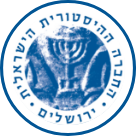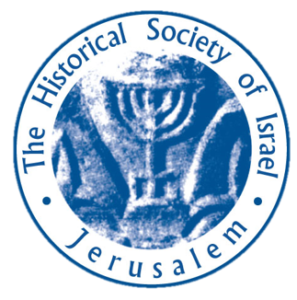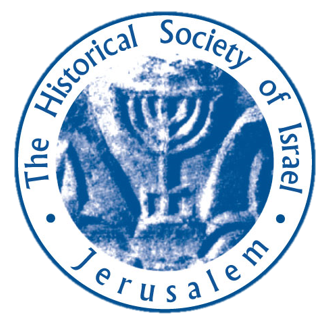Prof. Mustafa Kabha
Mustafa Kabha is full Professor in the Department of History, Philosophy and Judaic Studies and the Head of the Middle Eastern studies at the Open University of Israel. From his publications :
Writing up The Storm-The Palestinian Press Shaping Public Opinion (London: Vallentine Mitchell Academic, 2007).
(with D. Caspi), The Palestinian Arab In/Outsiders. Media and Conflict in Israel (London/Portland: Vallentine Mitchell, 2011).
The Palestinian People: Seeking Sovereignty and State. Boulder, London: Lynne Rienner Publishers, 2013.
Mustafa Kabha &Wadi’ ‘Awawdi , Prisoners without Bayonets: The Palestinian Prisoners and
the firs Israeli Detention Centers , 1948 -1949 . Institute for Palestine Studies , Beirut ,2013.(Arabic)
Mustafa Kabha , The Palestinian Names of Places and their Connection with Space:
al-Lajjun Region as an Example , The Arabic Language Academy- Haifa ,2013. .(Arabic)
He edited, Towards a Historical Narrative of the Nakba: Complexities and Challenges (2006), (Haifa: Mada, Arab Center for Applied Social Research, 2006) (Arabic);
Dr. Nathan MarcusDr. Nathan Marcus took a BA in history and economics from the Hebrew University of Jerusalem and earned his PhD in Modern European History with a dissertation on interwar Austria at New York University. Before joining Ben Gurion University, Dr. Marcus was a Max Weber postdoctoral fellow at the European University Institute in Florence, a Golda Meir postdoctoral fellow at the Hebrew University and a Lecturer in Modern European History at the Higher School of Economics in St. Petersburg, Russia. At BGU, where he directs the Center for Austrian and German Studies, his teaching and research focus on the history of Austria, financial history and the history of modern Europe. His monograph, Austrian Reconstruction and the Collapse of Global Finance, 1921-1931, was published with Harvard University Press in 2018. He is currently working on a history of the Viennese Black Market from 1943 to 1948.
Prof. Asher SalahAsher Salah is Associate Professor at the Bezalel Academy of Arts and Design and the Hebrew University in Jerusalem. He has been a fellow at the Katz Center for Advanced Judaic Studies in 2011-2012 and in 2014-2015, and at the Maimonides Center for Advanced Studies in Jewish Scepticism in 2016-2017 and 2020-2021. His scholarship deals with Jewish literature in early modern Italy, Sephardic studies and Jewish cinema in the Mediterranean area. His publications include a translation into Italian and an analysis of Samuele Romanelli’s Masa‘ Be‘arav (Florence: Giuntina, 2006), La République des Lettres: Rabbins, médecins et écrivains juifs en Italie au XVIIIè (Boston/Leiden: Brill, 2007), L’epistolario di Marco Mortara: un rabbino italiano tra riforma e ortodossia (Florence: Giuntina, 2012), Diari Risorgimentali: due ragazzi ebrei si raccontano (Livorno: Belforte, 2017), Il mondo fuori dal Ghetto: I viaggi di Moise Vita Cafsuto, gioelliere alla corte dei Medici (Torino: Claudiana, 2022) and with D. Flesler and M. Friedman, editor of “Genealogies of Sepharad,” Quest. Issues in Contemporary Jewish History, 18 (2020).
Prof. Scott UryScott Ury is Associate Professor in Tel Aviv University’s Department of Jewish History where he is also Director of the Eva and Marc Besen Institute for the Study of Historical Consciousness and Senior Editor of the journal History & Memory: Studies in Representation of the Past. His research focuses on Jewish and East European histories in modern times, in particular in Polish lands, with an emphasis on social and political questions including those related to urbanization, nationalism and migration as well as the study of antisemitism and memory. Published by Stanford University Press, his monograph Barricades and Banners: The Revolution of 1905 and the Transformation of Warsaw Jewry was awarded the Reginald Zelnik Prize for outstanding book in the field of history by the Association for Slavic, East European and Eurasian Studies (ASEEES). He has also co-edited several volumes on various aspects of modern Jewish history including, Antisemitism and the Politics of History (Brandeis, 2024; Hebrew version, Shazar Center, 2020), Key Concepts in the Study of Antisemitism (Palgrave, 2021), and Cosmopolitanism, Nationalism and the Jews of East Central Europe (Routledge, 2014). He was educated at the University of California, Berkeley and the Hebrew University of Jerusalem and has held fellowships or visiting positions at the University of Pennsylvania, the University of Toronto, the University of Warsaw, the University of Wisconsin, Madison, and, most recently, Harvard University.
Prof. Raanan ReinProf. Raanan Rein is the Elías Sourasky Professor of Latin American and Spanish History and former Vice President of Tel Aviv University. Rein is the author and editor of more than forty books and well over a hundred articles in academic journals and edited volumes. He is a member of Argentina’s National Academy of History, and former President of the Latin American Jewish Studies Association (LAJSA). The Argentine government awarded him the title of Commander in the Order of the Liberator San Martin for his contribution to Argentine culture. The Spanish King awarded him the title of Commander in the Order of the Civil Merit. In 2016 he won the Reimar Lüst Award (co-sponsored by the Alexander von Humboldt Foundation and the Fritz Thyssen Foundation).
Prof. Avri Bar-LevavProf. Avriel Bar-Levav of the Open University of Israel is head of Judaic Studies at the department of History, Philosophy and Judaic Studies, and head of the Center for the Study of Relationships between Jews, Christians, Muslims. He is co-editor of Zutot: Perspecives on Jewish Culture (Brill). He has published on Jewish intellectual history in the early modern period, Jewish attitudes towards death, history of the Jewish book, magic, and egodocuments. Among the books he co-edited: The Path of the Book: Tribute to Ze’ev Gries (Carmel, 2021); Studies in Contemporary Jewry, vol. 31 (2020): Textual Transmission in Modern Jewish Culture; Paths to Modernity: A Tribute to Yosef Kaplan (Zalman Sahzar Center, 2018); Death in Jewish Life: Burial and Mourning Customs among Jews of Europe and Nearby Communities (De Gruyter, 2014).
He is the recipient of the 2020 Am Ve-Olam prize for an outstanding paper in history, for his paper “Textual Intimacy and the Bond of Reading between The Expulsion from Spain and Amsterdam”.
Dr. Micha PerryMicha J. Perry (Ph.D. Hebrew University, 2008) is a senior lecturer of medieval Jewish history at the department of Jewish History at the University of Haifa. His book: Tradition and Transformation: Knowledge Transmission among Medieval Jews was published in Hebrew, in 2010; His second book was published by Routledge in 2019 under the title: Eldad’s Travels: from the lost Tribes to the Present. He was the ‘Alan M. Stroock’ Fellow for Advanced Research at Harvard University (2009); and the ‘Jacob & Hilda Blaustein’ Post-Doctoral Fellow at Yale University (2010-2011). He won the Fulbright Fellowship (2008); as well as the Lady Davis Fellowship Trust (2011-2012). During 2018-2019, he was a Visiting Lecturer at Yale‘s Judaic Studies Program and History Department.
His main areas of Research are: Medieval Jewish History; Histoire des Mentalités; Sociology of knowledge; Medieval Jewish Material Culture; Jewish-Christian relations in Medieval Europe; and the ties between Jews in the East (under Islam and Byzantium) and Jews in the West during the Middle Ages.
Dr. Cedric Cohen SkalliBorn and raised in Paris in a post-68 Jewish family, Dr. Cedric Cohen Skalli had studied and worked in academic institutions in several countries, including France, Germany, Israel, Spain, Portugal, Italy and the United States. Dr. Cohen Skalli’s first specialization was modern German philosophy (from Kant to Heidegger), especially its interpretation at the hands of French philosophers such as Levinas and Derrida (his esteemed professor). This initial focus continues to constitute the intellectual background of his research and he continues to actively study and translate texts in the field of German speaking thought – focusing primarily on the German-Jewish tradition and its broader political and theological significance as well as the history and philosophy of translation. Dr. Cohen Skalli was recently appointed director of the Bucerius Institute for the Research of Contemporary German History and Society at the University of Haifa. During his Ph.D. studies (1998-2004), he studied the relationship of Jewish thinkers to Renaissance Humanism – focusing specifically on the work of Don Isaac Abravanel (1437-1508). After completing my dissertation, Dr. Cohen Skalli wrote three books and several articles on various aspects of Jewish thought and literature during the Renaissance. His intellectual biography of Isaac Abravanel was published in the prestigious “the great men of the Jewish people” series of the Zalman Shazar Center and recently translated and augmented for The Tauber Institute Series For Study of European Jewry (Brandeis University Press). Since 2010, he has lectured on early modern and modern Jewish Philosophy at the University of Haifa.
Orit RozenProf. Debra KaplanProf. Debra Kaplan is a social and cultural historian of the early modern period in the Israel and Golda Koschitzky Department of Jewish History at Bar Ilan University, where she is also the Director of the Halpern Center for the Study of Jewish Self-Perception. She is the author of The Patrons and Their Poor: Jewish Community and Public Charity in Early Modern Germany (University of Pennsylvania Press, 2020) and of Beyond Expulsion: Jews, Christians and Reformation Strasbourg (Stanford University Press, 2011; Hebrew translation, Merkaz Zalman Shazar, 2016). Her scholarship focuses on daily life, gender, and Jewish-Christian relations.
Prof. Mustafa AbbasiProf. Mustafa Abbasi is an Associate Professor at the Department of Galilee Studies at Tel-Hai College. His research focuses on two main fields: the social history of the Palestinian Arab population from the late Ottoman period to the end of the British Mandate (in particular, social changes in the Arab cities and towns in the Galilee), and the history of the 1948 War in the four Galilee cities, and the rural population in their respective districts.
He has published several books, including: The Cities of the Galilee During the War of 1948: Four cities and four stories. Lap Lambert Academic Publishing, 2014 (English); Arabs and Jews in a Mixed City: Safad during the Mandate period, 1918–1948. Jerusalem: Yad Ben-Zvi. 2015 (Hebrew); Living in Mandatory Palestine: Personal Narratives of Resilience of Galilee During the Mandate Period (co-authored with Roberta Green, Shira Hantman,Yair Seltenrich, and Nancy Green), Rutledge Publishing, 2018 (English). His articles include: “The War on the Mixed Cities: The Depopulation of Arab Tiberias and Destruction of its Old, Sacred City (1948–1949),” The Holy Land Studies, 1/1 (March 2008), pp. 45–80; “The Fall of Acre in the 1948 Palestine War,” Journal of Palestine Studies, 39/4 (Summer 2010), pp. 6–27; “Nazareth in the War for Palestine,” Holy Land Studies, 9/2, November 2010), pp. 185– 207; “Samakh: The Rise and Fall of a Palestinian Arab Town on the Shores of the Sea of Galilee,” Holy Land Studies, 12/1 (May 2013), pp. 91– 108; “The Education System in East Jerusalem During the Period of Jordanian Rule, 1948–1967,” Journal of Politics and Law, 6/4 (2013), pp.1–13; “Khalsa: The Town with a ‘Golden Fountain”: The Rise and Fall of an Arab Town North of the Huleh Valley, The Journal of Imperial and Commonwealth History Volume 44, Issue 3, (May 2016), pp. 448–469; ”The Battle for the Galilee: Maronites and the Palestinian Village of Jish during the 1948 War,” Journal of Holy Land and Palestine Studies, Volume 15.2, (2016), pp. 249–273; “Palestinians Fighting Against Nazis: The Story of Palestinian Volunteers in the Second World War,” War in History (November 2017), pp.1–23.
Prof. Moshe SluhovskyMoshe Sluhovsky (PhD Princeton, 1992) is Paulette and Claude Kelman Professor of French History at the Hebrew University of Jerusalem. He currently serves as the head of the Institute of History, and as the head of the Lafer Center for the Study of Women and Gender. Over the years, he has held several fellowships—at Mellon Foundation, the National Endowment for the Humanities (NEH), the German Israel Foundation (GIF), and the Einstein Foundation; the National Humanities Center in North Carolina; the Davis Center at Princeton University; and the Graduate Center of the City University of New York.
His books include: “Believe not Every Spirit”: Demonic Possession, Mysticism, and Discernment in Early Modern Catholicism and Becoming a New Self: Practices of Belief in Early Modern Catholicism. He also edited several collections of articles—two of which (on 500 years of Protestant-Jewish interactions) will be published in late 2021.
Since 2015, he has been collaborating with Professor Andreas Krass of Humboldt University in Berlin in a joint research project on the Jewish Presence in Gay and Lesbian Berlin during the Weimar Period, and the migration of German-Jewish gay men and lesbians to Palestine in the 1930s. Two collections of articles resulting from this cooperation will be published in 2021.
Prof. Shmuel FeinerProf. Shmuel Feiner is Professor of Modern Jewish History at Bar Ilan University, Chairman of the Historical Society of Israel, and historian of European Jewry in the eighteenth and nineteenth centuries (especially the Jewish Enlightenment, and the trends of secularization and counter-modernity). Recipient of the Alexander von Humboldt Research Award, 2012. Author of Haskalah and History; The Emergence of a Modern Jewish Historical Consciousness (Hebrew 1995; English, 2002); The Jewish Enlightenment (Hebrew, 2002; English, 2004); Moses Mendelssohn (Hebrew, 2005; German, 2009; English, 2010; Chinese, 2014); The Origins of Jewish Secularization in Eighteenth Century Europe (Hebrew, 2010; English, 2011); The Jewish Eighteenth-Century, A European Biography, 1700–1750 (Hebrew, 2017; English [forthcoming 2020]); The Jewish Eighteenth-Century, A European Biography, 1750–1800 (University of Indiana Press 2020).



